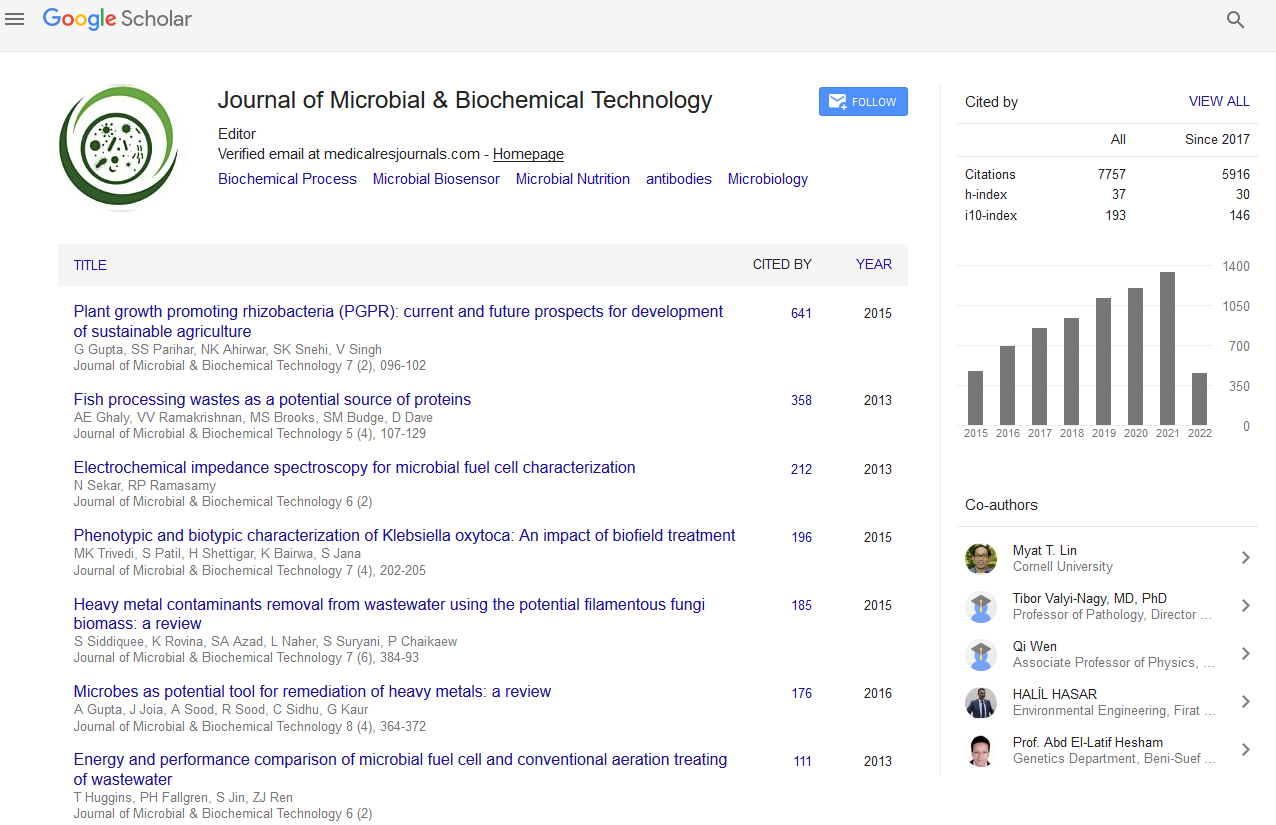PMC/PubMed Indexed Articles
Indexed In
- Academic Journals Database
- Genamics JournalSeek
- Academic Keys
- JournalTOCs
- China National Knowledge Infrastructure (CNKI)
- Scimago
- Access to Global Online Research in Agriculture (AGORA)
- Electronic Journals Library
- RefSeek
- Directory of Research Journal Indexing (DRJI)
- Hamdard University
- EBSCO A-Z
- OCLC- WorldCat
- SWB online catalog
- Virtual Library of Biology (vifabio)
- Publons
- MIAR
- University Grants Commission
- Geneva Foundation for Medical Education and Research
- Euro Pub
- Google Scholar
Useful Links
Share This Page
Journal Flyer

Open Access Journals
- Agri and Aquaculture
- Biochemistry
- Bioinformatics & Systems Biology
- Business & Management
- Chemistry
- Clinical Sciences
- Engineering
- Food & Nutrition
- General Science
- Genetics & Molecular Biology
- Immunology & Microbiology
- Medical Sciences
- Neuroscience & Psychology
- Nursing & Health Care
- Pharmaceutical Sciences
Abstract
Development and Evaluation of a Commercial Sequence-Based Strain Typing Service for Listeria monocytogenes
Listeria monocytogenes is an important foodborne pathogen and, relatedly, a persistent contaminant in many food processing facilities. Strain typing is critical to detecting and investigating outbreaks, and can be used to track down sources of contamination. The typing systems in current use have limitations ranging from low resolution and data portability to high cost and technical complexity. The aim of this study was to develop an outsourcing option for L. monocytogenes strain typing that addresses these limitations. The NCBI Genomes database representing 109 strains was screened for highly informative, tandem repeat-containing loci. The most promising, termed LmMT1 (0.8-1 kbp) and LmMT2 (0.7-0.8 kbp), exhibited complex patterns of polymorphism (insertions/deletions and single nucleotide polymorphisms), diversity indeces of 0.99 (LmMT1) and 0.98 (LmMT2), and were present in all L. monocytogenes and from one (LmMT1) to four (LmMT2) additional Listeria species represented in NCBI databases. Using a distinct set of strains, Miya et al. (J. Microbiol. Methods, 2012, 90:285-291) previously reported diversity indices of 0.95 and 0.91 for more limited regions (0.3-0.5 kbp) of these same two loci. Phylogenetic analysis of LmMT1 and LmMT2 sequences revealed distinct clusters corresponding to serotype (4b, 1/2a, and 4a complexes) and evolutionary lineage (I, II, and III/IV). Comparisons to PFGE, the current gold standard, suggest that LmMT1 typing is comparably discriminatory. Importantly, strains from four outbreaks formed corresponding clusters, although those from a 2002 outbreak were resolved into related environmental and food/human isolates that challenges their epidemiological connection. In the laboratory, LmMT1 and LmMT2 typing proved to be robust, generating high quality sequence from colonies submitted as non-hazardous heat-inactivated suspensions. Analysis of LmMT1 sequences from 62 diverse strains demonstrated overall agreement with single nucleotide polymorphism-based typing.


